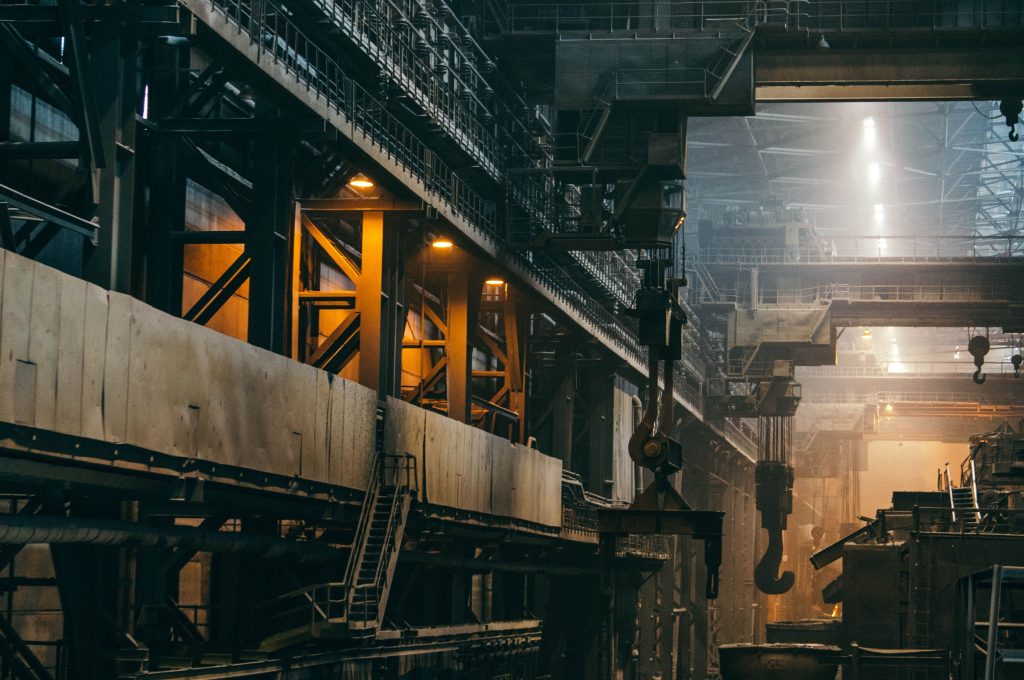What to Look for in an Industrial Property

Industrial property is a unique subset of the commercial real estate market that can be tricky to shop for if you’re not working with a knowledgeable broker. Typically, companies that are searching for an industrial property have unique needs and require a building that is able to accommodate machinery, shelving, or climate-controlled rooms for storage. Because buying an industrial property is a little trickier than buying a residential home, or even another commercial property, make sure you’re looking for these five things before you buy.
Location
When it comes to real estate of any kind, it’s all about the location. You need to analyze the area around the building. Who are your neighbors? What is the foot traffic like? Are there any security concerns?
While you still need to answer those three questions when buying industrial property, you also need to consider zoning laws. Factories are not necessarily the most subtle buildings. They can be loud and full of heavy machinery or produce certain smells that aren’t the most pleasant. This is where zoning laws can impact the buying process. Most of the time, you won’t be able to place a loud factory right downtown. Make sure the areas you’re looking at are zoned appropriately for the type of building you’re investing in.
Signs of Damage
As with buying any property, you need to look the building over carefully for signs of damage before signing on the dotted line. However, industrial properties are a little different than an office building. Make sure you’re checking for signs of chemical spills or looking for underground storage areas. It’s not too far off to assume that the previous owners worked with some dangerous chemicals. You don’t want to be stuck cleaning up their mess. Also, hire an inspector to assess the structural integrity of a building. Structural damage is serious and usually pretty expensive to fix.
If you do see signs of damage, you have to decide how that impacts your buying decision. Is it small enough that you don’t mind fixing it? Keep in mind that if it’s not a big problem and you don’t mind spending the time and money to fix some damage, you can usually get a decrease in price.
If this is your first time buying an industrial property, make sure you have someone with you who is familiar with the buildings. An experienced broker can tell you where to look, what to notice, and which areas are typically prone to the most damage.
Current Use
What is the building currently being used for? If it’s only being used for storage, and you would like to set it up for manufacturing car parts, you’ll have a lot more build out to do than if you were to buy a building that was already set up for heavy machinery.
When analyzing the current use of the building, make sure to also take into account how successful it is. Does the building layout lend itself to inefficiency or efficient processes? If it isn’t doing well, is it because it’s in a tough location or is it because of its current management?
There’s a lot to consider when it comes to an industrial property’s current use. It’s important that you appropriately account for its profitability as well. An experienced broker can help you perform the correct calculations to get an accurate picture of its current financial state. Especially if you’re hoping to lease it out, understanding the price you could rent it for in your area as compared to your expenses is hugely important.
Correct Utilities
Running heavy machinery or maintaining a controlled climate for storage takes a lot of power. If the industrial property you’re looking at isn’t hooked up to the right amount of voltage, then you could be in for a big overhaul. The utilities your industrial property will have access to is also related to the location. An industrial park will be more suited to accommodating the energy needs of various types of equipment versus a downtown area that’s more accustomed to small shops.
Don’t make the mistake of just checking the voltage available. Also take note of the water. Does it have enough pressure to run sprinklers? Is there gas available? How are the utilities charged?
Make sure that all of the utilities are compliant with the Occupational Health and Safety Act. This act was passed to regulate working conditions. For example, your workers need access to clean bathrooms, drinkable water, and enough light to work by comfortably. What utilities are currently installed in your building can have a big impact on the working conditions of your factory.
The Right Broker
When you’re buying an industrial property, you shouldn’t do it by yourself. As a matter of fact, I would highly recommend against it. Working with an experienced broker gives you all the benefits of years of expertise. Plus, you’ll have someone working for your best interests. Remember, the seller and their broker are working towards the seller’s interests. You cannot count on them to include your interests as well.
Working with a commercial real estate broker ensures that you get the best deal possible on a great industrial property. AushCo offers proven expertise, deep knowledge of the market, and customized guidance.
If you’re ready to take advantage of all that AushCo can offer you, get in touch with us today. We’ll thoroughly review all of your needs and expectations for selling or buying a commercial property and set you up for CRE success.
